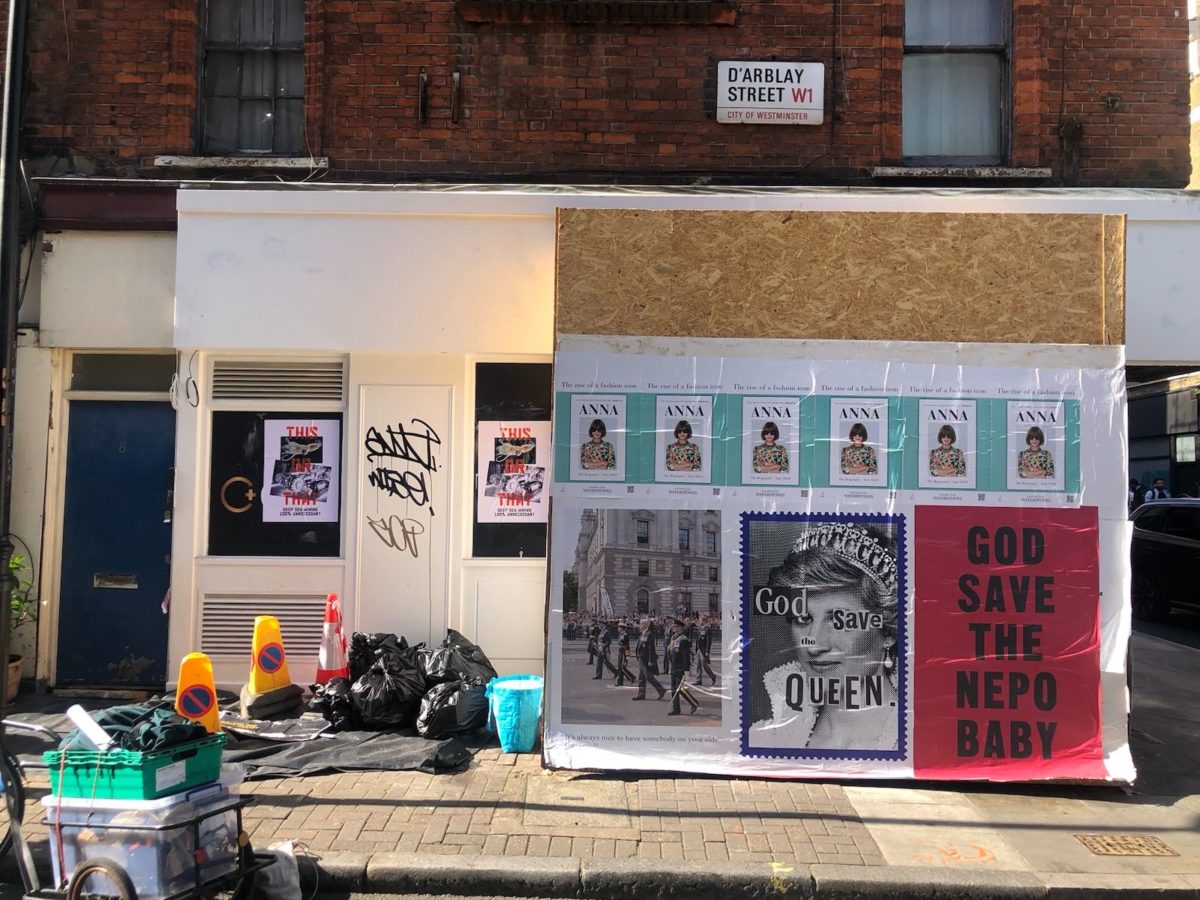STOP DEEP SEA MINING
03.05.2023
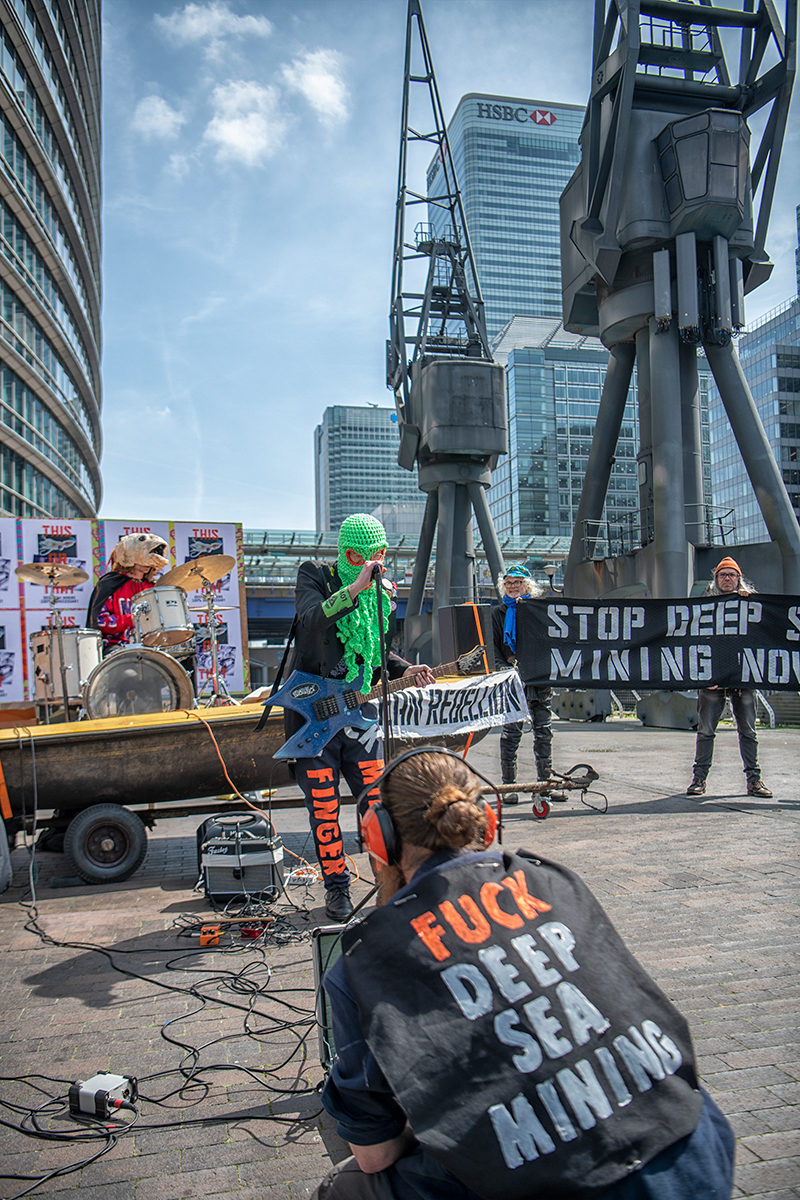
Today and tomorrow [May 3 and 4] the deep sea mining community is holding a Deep Sea Mining Summit at the Marriott Hotel in Canary Wharf.
The summit sounded a bit boring so we invited the Polymetallic Nodules to liven up their lunch time.
In their first ever UK gig the ‘Polymetallic Nodules’ performed a ‘shout along’ with fans, spelling out the harms of deep sea mining. As smoke from the boat stage blew across the quayside, fans joined in with deep sea favourites like ‘BUTCHERING THE SEABED’, ‘NOT DURING MY PARTY’ and ‘WE ALL DIE (PLANKTON)’.
During the gig the ‘Nodule’ merchandise stand did a roaring trade in free merchandise and the ‘Nodule’ super-fans held aloft banners. Special deep sea miner security guards watched on, making sure everything remained loud and disturbing while displaying their overly masculine attire.
The ‘Polymetallic Nodules’ create an ear splitting sound, but their sound is much quieter than the noise deep sea mining inflicts on marine life [deep sea mining noise is estimated to be x100 louder than a space rocket launch]. Whales and other deep-diving animals rely on sound to hunt prey, locate mates, and find their way along migratory routes. Deep sea mining will disrupt this, seriously damaging delicate ecosystems.
Ocean Rebellion asks attendees of today’s (and tomorrow’s) Deep Sea Mining Summit to consider how loud our music is while they munch their lunch. Is the disorientation of deep diving animals an expense worth paying to test out their science? Is the destruction of unique marine habitats really worth the revenue? Do attendees want to destroy the last unspoilt habitat on the planet?
And why did one of the attendees feel it necessary to tell the Police we’d broken one of the windows? Is it because they just can’t stop lying? We hope the caution they received for wasting Police time reminds them of the social price of lying.
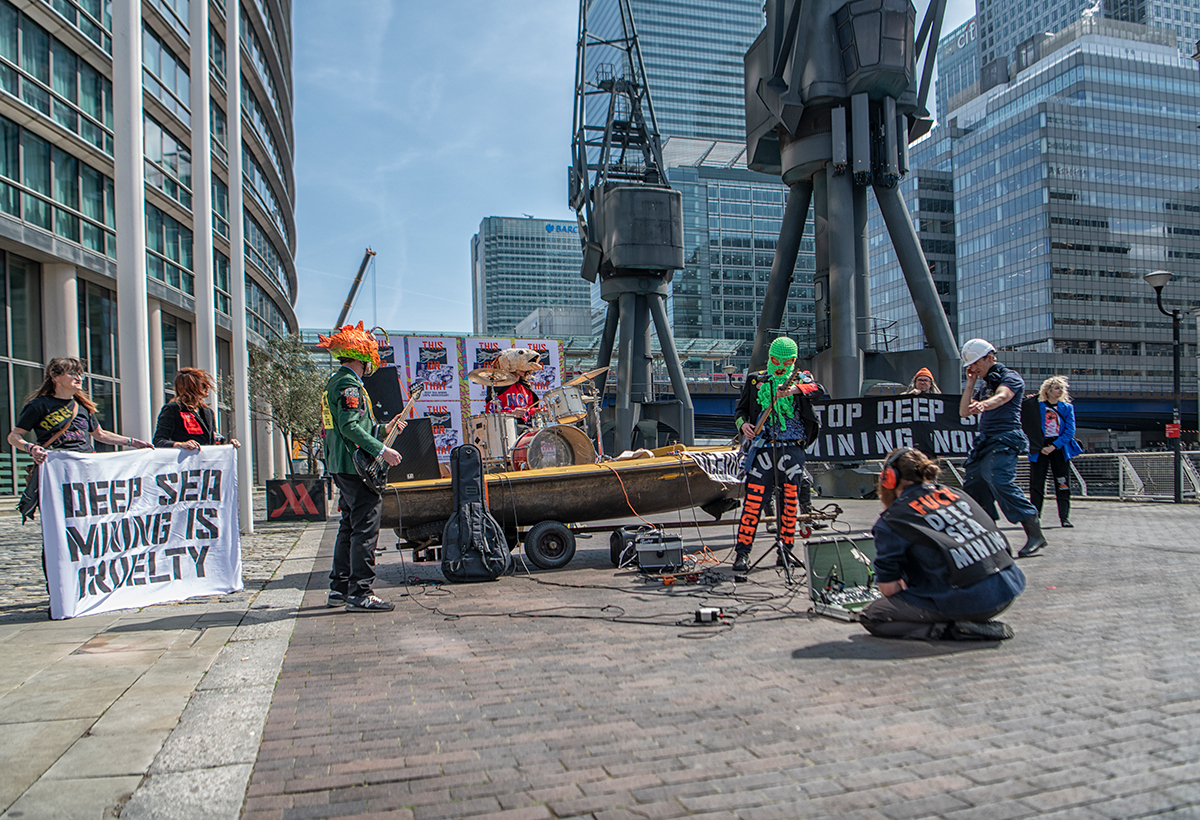
We demand they consider the real problems of deep sea mining instead of talking about ‘Moving ahead with Precaution’ [the name of a talk by SeaTech at the event]. And Ocean Rebellion isn’t alone in questioning the value of deep sea mining. Marine scientists from around the world, global businesses and many countries agree that it is a bad idea. Spain, France, Germany and Canada have all spoken out against deep sea mining, saying the impacts are not understood and the benefits are not apparent. And vehicle manufacturers including BMW, Volkswagen and Renault have declared their electric vehicles will not use deep sea mined metals.
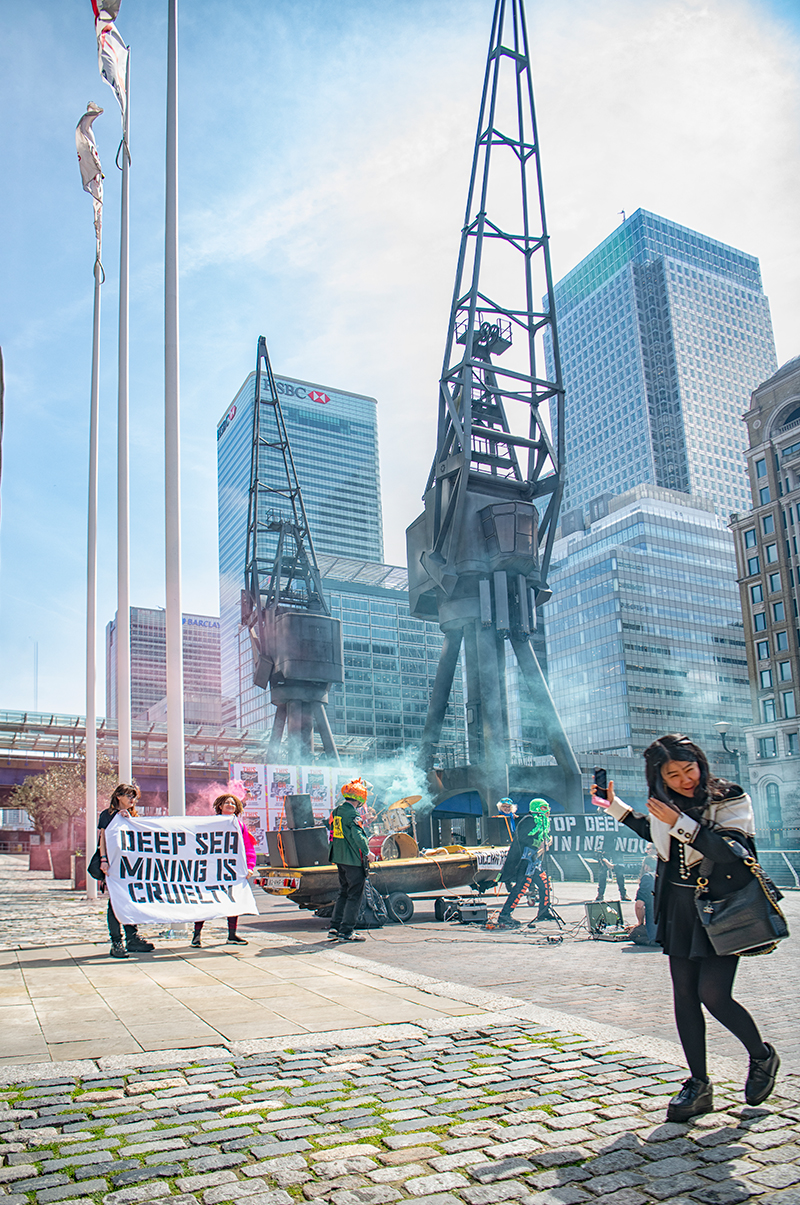
What is deep sea mining and what harm will it do?
Parts of the bottom of the deep sea contain mineral chunks known as ‘manganese nodules’. These hard rock-like lumps can be used for ‘green’ battery technology, among other things. The companies who want to mine for nodules would like us to think this can be done carefully, but this is simply untrue. Deep sea mining strips the seabed of all life, including deep sea sponges, and corals that have taken thousands of years to grow. It releases huge plumes of sediment into the water column and no one knows what effect this will have on the ocean and its ecosystems but the consensus isn’t good. Plus, as mentioned, the noise deep sea mining makes will disorientate marine life that relies heavily on sound to create its underwater maps for feeding, mating and communication.
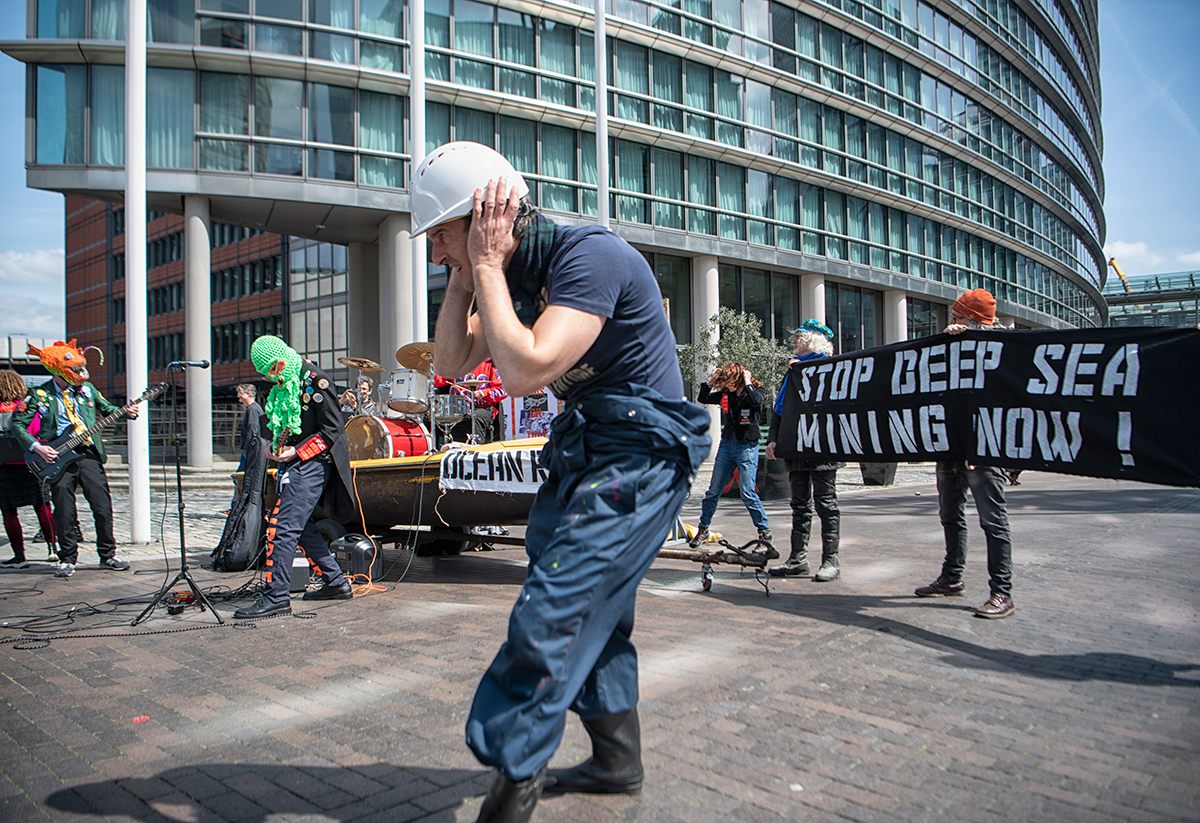
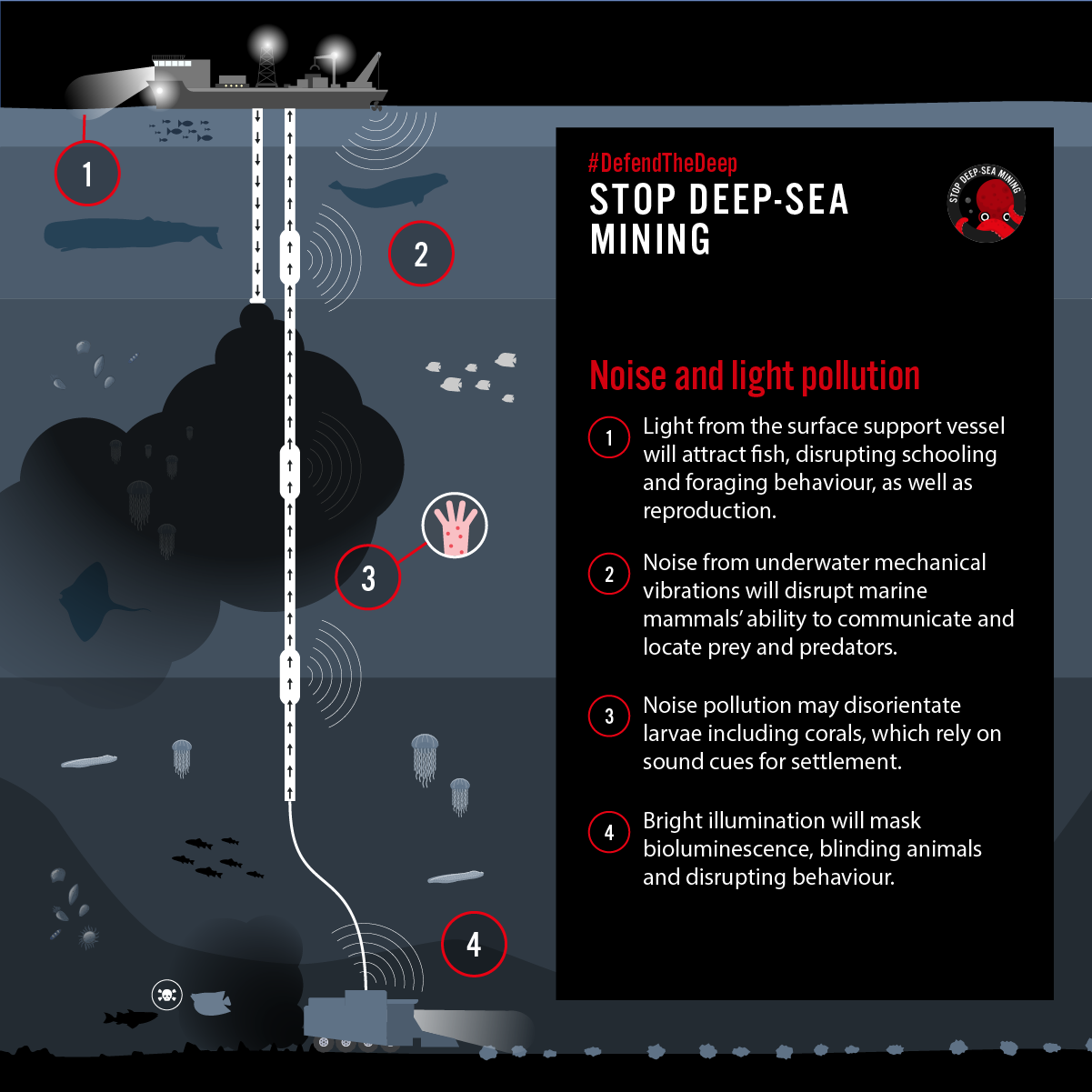
If deep sea mining goes ahead massive areas of the ocean seabed will be devastated. Recently the UN International Seabed Authority (ISA) awarded licences to mine 8,000 to 9,000 square kms of deep seabed at a time*. This area is equivalent to the size of Wales. That’s Wales stripped clean of all life, hard to imagine this being allowed on land. So why does the UN body, the ISA, and the deep sea mining companies, think it’s ok to do it at sea? It’s like using a bulldozer to harvest apples.
Wales stripped of all life
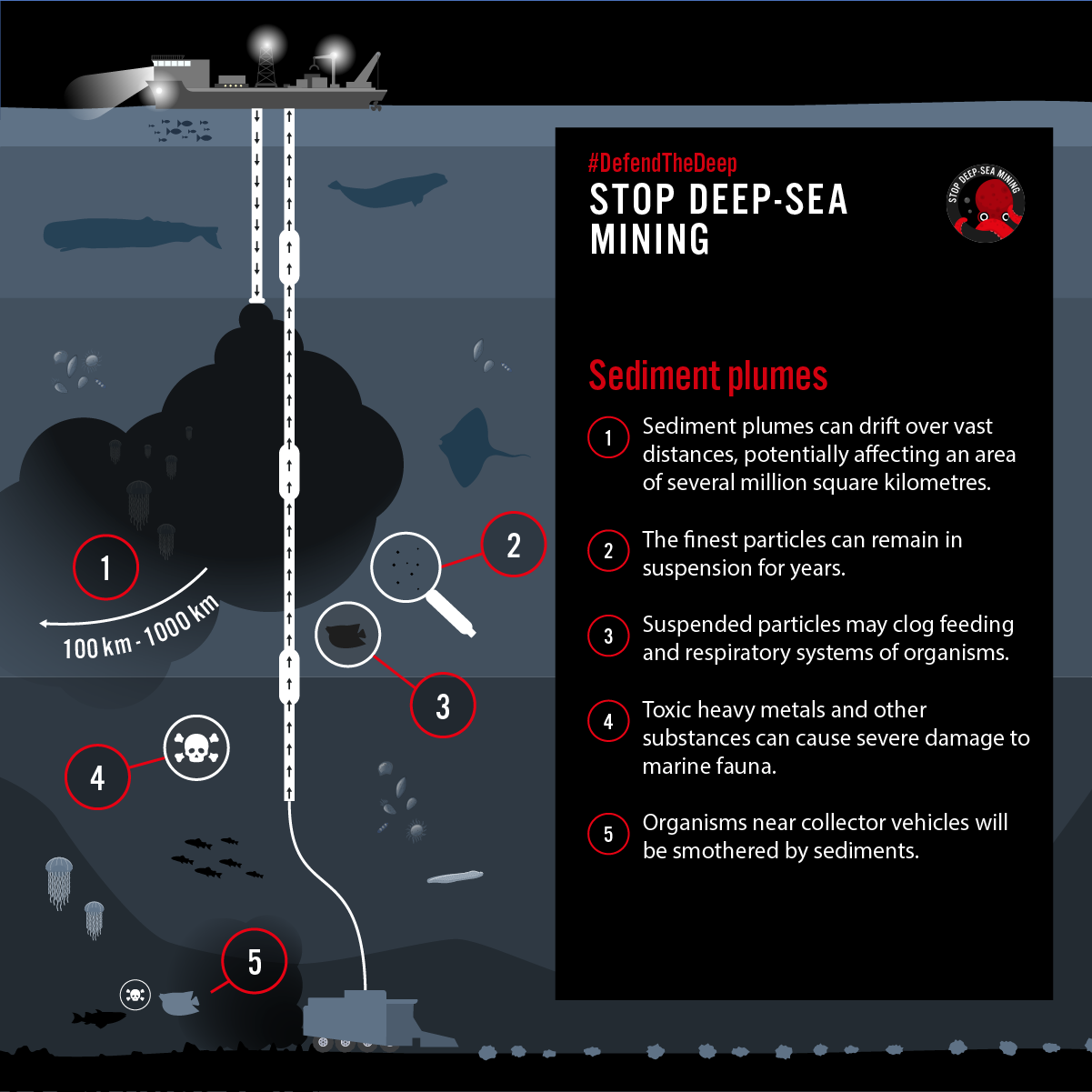
Controversy
The ISA is supposed to manage the high seas for the ‘benefit of [hu]mankind’. At the same time it profits from selling licences to mine. How can a UN agency be allowed to profit from something it is designed to protect? And why is a UN agency allowed to act against its own ‘precautionary principles’? Is profit the only measure the ISA is considering? There is a lot of smoke around the ISA, its governance is opaque and seems to be designed to enrich the rich. Has the ISA gone rogue, and shouldn’t the UN call it to heel?

The fate of the Ocean depends on us all.
Our interventions depend on your support.
Do we need deep sea metals to go ‘green’?
The deep sea mining industry would like us to think so. But major international companies have stated they will not use nor invest in deep sea metals. The list is growing and includes signatories like BMW, Volkswagen and Google. Banks are also steering clear of this emerging industry that belongs in the past. Deep sea mining is a 1970s nightmare living in the 21st Century, a lot like fossil fuels. In fact the only real solution to our climate crisis and resource issues are nature-led and require a change in the way we live and act. The throwaway culture of the past needs to be thrown away, companies and governments must transition away from exploitation (using technology as a guise for progress) for profit, towards a circular view that values repairability and the urban mining of existing, extracted, metals.
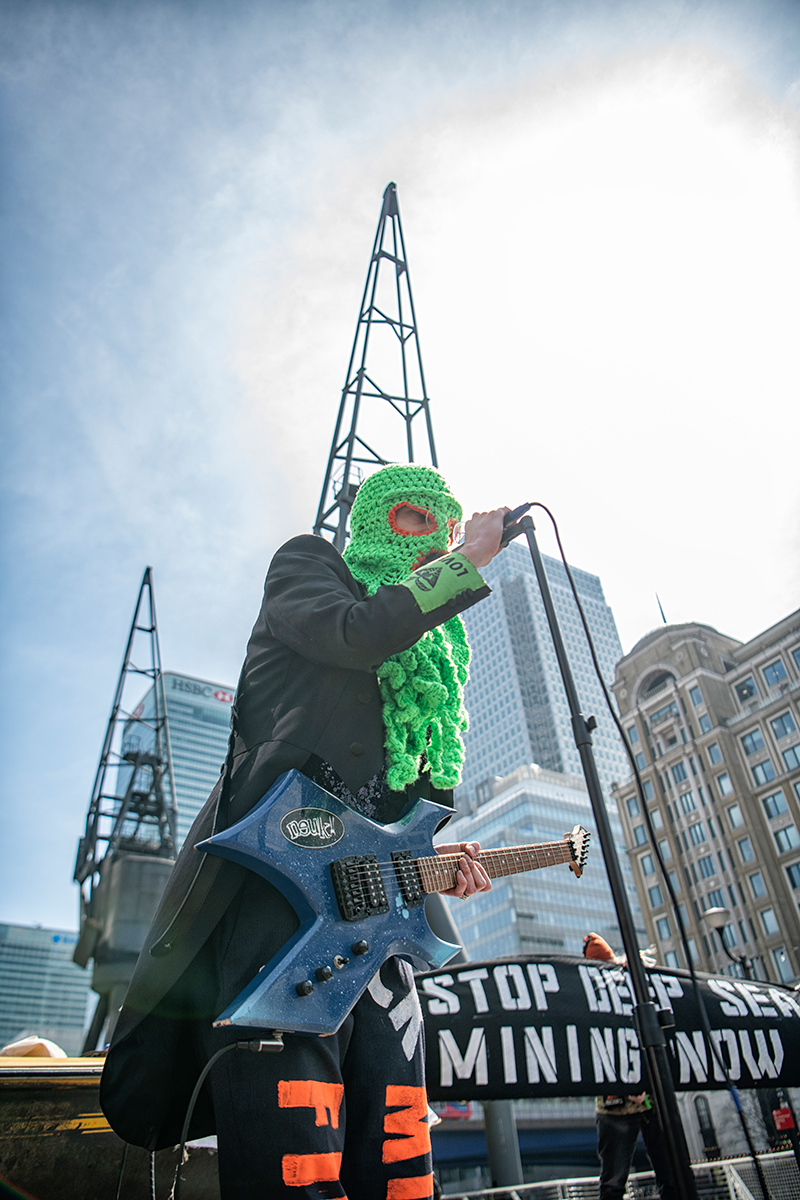
Ocean Rebellion demands an end to Deep Sea Mining. Together with a root and branch reform of the ISA. This reform must focus on protecting the deep (and high) seas on behalf of ALL life and future generations.
Stefanie Wels from Ocean Rebellion says:
“The deep sea is not a ‘resource’ to be plundered at will by a few greedy companies. It’s a vital habitat we know little about. The UN International Seabed Authority must stop this insanity now and start protecting the seabed for the benefit of ALL life, not for the benefit of its own funding model nor a group of greedy insiders.”
Fish Stix from the ‘Polymetallic Nodules’ adds:
“The UN International Seabed Authority (ISA) is clearly unfit for purpose. How does decimating the deep sea bed, releasing carbon stored in deep sea sediments, and disrupting the Earth’s largest (and most undisturbed) ecosystem, fit with the UN’s aims for the future?
Roc Sandford from Ocean Rebellion says:
“And the economics don’t make sense either. The ISA is supposed to manage the seabed ‘for the benefit of mankind as a whole’, but the royalties collected from each mining licence will amount to a few thousand dollars for each ISA country member per year. The big money will go to the shareholders of deep sea mining developers like Global Sea Mineral Resources and The Metals Company, together with their banks and insurers. How is that (hu)mankind as a whole? Deep sea mining is no different to fossil fuels, it’s a greenwashing greed machine designed to benefit a few, already rich, sociopaths.”
Suzanne Stallard also from Ocean Rebellion says:
“In deep sea mining we have an opportunity to stop a contributor to environmental destruction before it has started. We genuinely don’t need to mine the deep sea, we have the minerals we need already. The companies attending this summit are just looking to fill their pockets with investor capital.”
Clive Russell also from Ocean Rebellion adds:
“You can clearly see what the deep sea mining industry is doing by reading their propaganda list DSM-facts.com – it is a lie to us that tells us deep sea mining is only research for universal benefit, when in fact it’s just a Ponzi scheme. It’s like watching a Shell strategy meeting discussing how to greenwash their next oil disaster – cigar anyone?”
ACT NOW
Sign this petition and make the UK Government debate deep sea mining.
Leave a review of the UN International Seabed Authority on google maps.
Add a review of the UN International Seabed Authority video on YouTube
Join the voices asking for a moratorium on Deep Sea Mining.
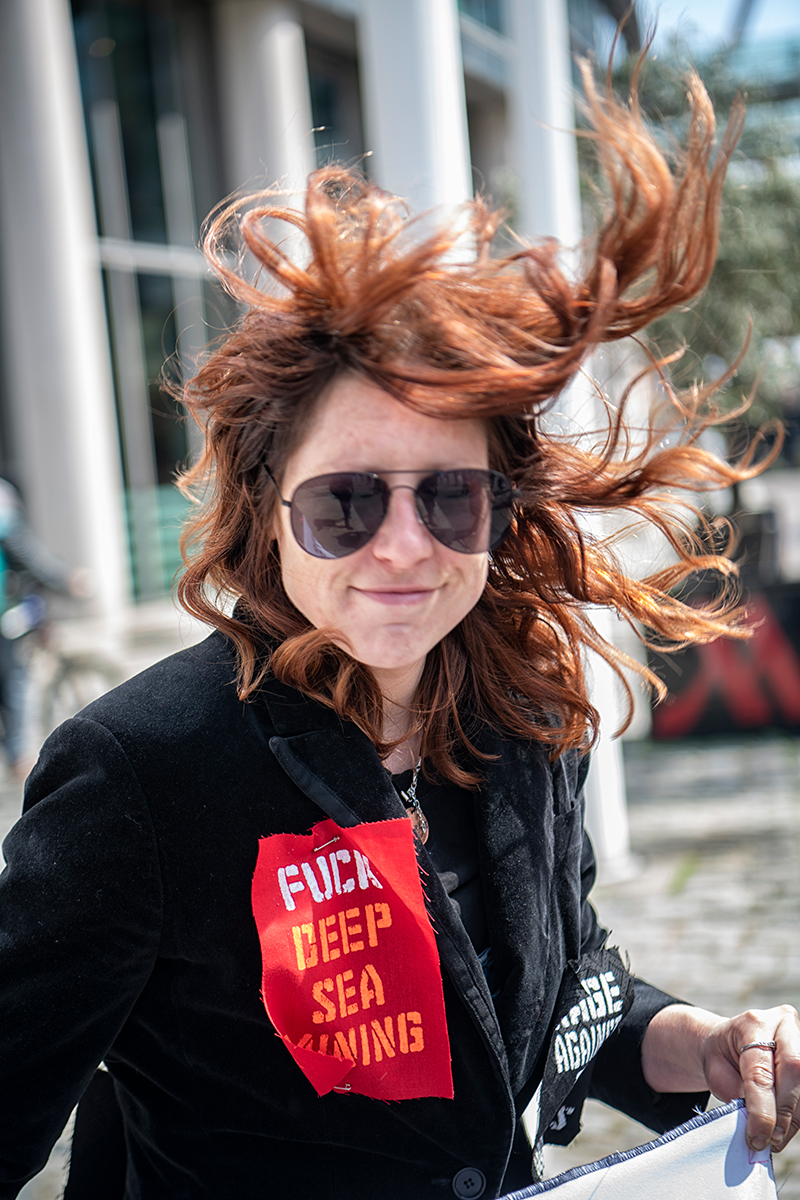
The fate of the Ocean depends on us all.
We’ll let you know what we’re doing to help.
Photos by Guy Reece (above), anon below.
